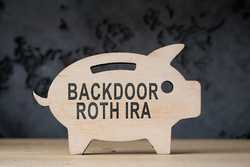How to Invest in Index Funds: A Step-by-Step Guide for Beginners

Our evaluations and opinions are not influenced by our advertising relationships, but we may earn a commission from our partners’ links. This content is created by TIME Stamped, under TIME’s direction and produced in accordance with TIME’s editorial guidelines and overseen by TIME’s editorial staff. Learn more about it.
In the quarter century they’ve been around, index funds have made investment easy, efficient, and cost-effective. Here’s what you need to know about how they work and how to start investing with this popular fund choice.
Index funds are mutual funds or exchange-traded funds (ETFs) that hold investments, typically stocks or bonds, tied to an index—hence the name—such as the Dow Jones Industrial Average (DJIA) or S&P 500. Index funds offer a number of advantages: diversification, low costs, and little-to-no maintenance on the part of the investor.
The NASDAQ, for example, is focused on growth stocks and tends to be more aggressive on the risk-reward scale. The Dow and S&P 500 are less volatile—though, as with any investment, they’re not bulletproof. In 2022, they dropped 8.78% and 19.44% respectively, though they recovered value in the first half of 2023. Study the exchanges for past performances and the types of companies listed before you invest any money. Then factor in your risk tolerance and time horizon.
Many of the major players such as fund giant Vanguard and discount brokers Fidelity Investments and Charles Schwab are highly rated for their index funds and offer a wide variety. If you choose the Vanguard S&P 500 fund, you’re in good company: Investment guru and billionaire Warren Buffett calls it a favorite.
The account-opening process at many investment companies takes about 10 minutes, including at Vanguard, TD Ameritrade and Fidelity. When making a choice, you’ll want to take brokerage fees into account.
When you invest in an index fund, you’re in the same boat as the broader stock or bond index it is mirroring. In the case of the Dow Jones Industrial Average, that links you to an annual return of 8.70%, as measured by the SPDR Dow Jones Industrial ETF (DIA), from its January 1998 inception through March 2022. If you choose an ETF index fund, rather than a mutual fund ETF, your costs are likely to be even lower.
Index funds can encourage investor passivity. The investor who relies solely on them may miss out on the opportunities offered by skyrocketing growth stocks, for example. And while you’re getting an entire basket of stocks in the fund, you won’t be diversifying to the point where you’d include bonds, real estate or other non-equities.
According to “Oracle of Omaha” Warren Buffet, just about anyone—including his estate once he passes away. In his famous 2013 letter to Berkshire Hathaway shareholders, Buffet wrote about how he wants his money invested for his wife after his passing: “My advice to the trustee could not be more simple: Put 10% of the cash in short-term government bonds and 90% in a very low-cost S&P 500 index fund.”
Many index funds have fees of less than 0.4%, whereas actively managed funds often charge fees of more than 0.77%. Compound that difference over time and you can see how index funds can offer significant wealth-building advantages. Many larger funds charge just $3 to $10 per year for every $10,000 you have invested.
Much of this will depend on how much risk you want to take. For example, NASDAQ index funds will be tied to growth and tech stocks that generally carry more risk. The Dow Jones is home to stalwart stocks that in many cases have been around for more than half a century. And S&P 500 stocks are weighted based on market capitalization rather than stock prices, as is the case with the Dow, where companies with a higher share price or more extreme price movement have a greater impact.
For beginners, the vast array of index funds options can be overwhelming. We recommend Vanguard S&P 500 ETF (VOO) (minimum investment: $1; expense Ratio: 0.03%); Invesco QQQ ETF (QQQ) (minimum investment: NA; expense Ratio: 0.2%); and SPDR Dow Jones Industrial Average ETF Trust (DIA). (minimum investment: none; expense Ratio: 0.16%).
You can also compare the best index funds and low cost index funds we've collected for you to consider.
Real estate, precious metals, and picking your own bonds or basket of stocks all represent established alternatives to index funds. You can also work closely with a financial advisor, such as JP Morgan Personal Advisor, to develop an investment approach that may or may not include index funds. Services like WiserAdvisor can match you with the financial advisor suited for your needs.
Find the right financial advisor with WiserAdvisor
Find the right financial advisor with WiserAdvisor
In an actively managed fund, you’re counting on the expertise of a fund manager or investment professional to outperform market indices. Index funds, by contrast, remain in the stocks and other investments that the index itself tracks.
Index funds, though not risk free, make diversification easy and have lower fees than actively managed funds. The S&P Dow Jones Indices’ scorecard shows that, as of January 2023, only 8.59% of actively managed funds outperformed the S&P 500 over a period of 10 years. If you’re in that fortunate percentage, great—but you’ll also be paying higher fees for what might turn out to be close to break-even performance compared to the index fund.
Arguably, any time is a good time if you have an investment horizon of a decade or more. Viewed long-term, major equity indexes have robust track records. For example, the S&P 500’s average return is 10.67% annualized since the inception of its modern structure in 1957.
The same forces that doom investors in other scenarios—anxiety in plunging markets, fear of missing out (FOMO) and greed—can imperil anyone who sells their index fund shares during a short-term market dip. Ask anyone who sold off in the wake of the Feb 20 to March 14, 2020 mini-crash. The Dow Jones Industrial Average lost 35% immediately. Those who held on since March 20 have seen their index funds gain about 78%.
ETFs are considered a type of index fund, but not every index fund is an ETF. Index funds are often invested through mutual funds. ETFs can be traded more easily, much like stocks themselves. ETFs can be bought and sold on an open exchange, while mutual funds are only priced at the end of the day.
The information presented here is created by TIME Stamped and overseen by TIME editorial staff. To learn more, see our About Us page.





